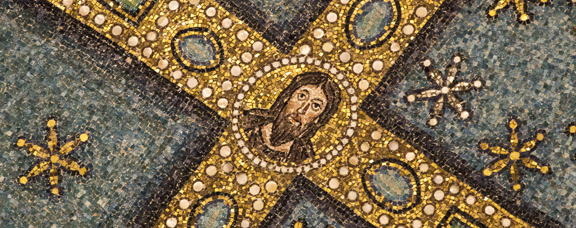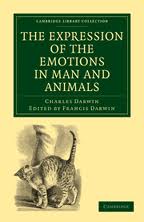“We can accept man as a fact, if we are content with an unexplained fact. We can accept him as an animal, if we can live with a fabulous animal. But…then indeed we must provide a prelude and crescendo of mounting miracles….” – G.K. Chesterton
The traditionalist school of thought advocates for the qualitative supremacy of humanity. When simply observing modern life, this view of things would certainly appear to be true. City lights are spread across the globe, along with agriculture and industry. When compared to the most intelligent animals – apes, living in wilderness – it’s difficult to consider humanity to be anything but superior.
Traditionalists in the West have defined this difference as being about the imago Dei (Latin for image of God) in man. Entire books have been written on the subject, but briefly, historical Christian theology has contended that mankind was made in God’s image according to Genesis 1:26-27. As the crown of God’s creation humanity uniquely displays the image of God by his rational capacities, moral volition, relational distinctives, spiritual qualities, and dominion over nature. Humans reflect the splendor of their Maker, yet in finite expression. As image-bearers humans possess inherent dignity and moral worth and should be treated with respect regardless of race, sex, class, or beliefs. Man’s fall into sin severely tarnished this image.
Kenneth Samples endeavors to prove this idea not only by examining what humans can do, but what humans are. He does so in the following article, entitled “How Humans Differ from Animals.” While this article reflects a Judeo-Christian perspective, the arguments cited by the author are shared by other monotheistic religions in all aspects (except the biblical references for the image of God). Samples argues, among other things, as follows:
Exposure to the secular, naturalistic worldview – especially in academia – can leave one wondering whether the differences are simply a matter of degree. In this view, mankind leaped to the top of the evolutionary heap by chance events.
However, philosophers have identified many ways in which human beings differ dramatically from animals. Unique human qualities and traits set man apart from the animals by kind, not just degree. From a Christian worldview perspective, and specifically in light of the Imago Dei, one would expect profound differences, including the few that follow.
Inherent Spirituality
Human beings have an inherent spiritual and religious nature. The vast majority of people on Earth pursue some form of spiritual or religious truth. Most human beings have deep-seated religious beliefs and engage in intricate religious ritual. Pursuit of God or the transcendental is a defining characteristic of mankind and is evidenced in such common practices as prayer and worship – so much so that some have designated humans as homo religious – ’religious man.’ By contrast, formal atheism is largely inconsistent with the overall history of human nature and practice. Even professed nonbelievers (atheists, skeptics) pursue questions concerning life’s ultimate meaning and purpose and are drawn to whatever they consider to be of ultimate importance and value. Philosopher Harold H. Titus has said that even agnostics and atheists ‘tend to replace a personal god with an impersonal one – the state, race, some process in nature, or devotion to the search for truth or some other ideal.’
Man, of all Earth’s creatures, is uniquely cognizant of his imminent death. This recognition brings him personal angst and contemplation of God and the possibility of immortality. The ancient Greek philosopher Socrates (c. 470-399 B.C.) stated, ‘The unexamined life is not worth living.’ It is left for man alone to contemplate what philosophers call ‘the big questions of life.’ Animals, on the other hand, can be very intelligent but show no sign of spirituality or concern with ultimate issues.
Sophisticated Communication
Human beings possess unique intellectual, cultural, and communicative abilities. Humans are thinkers, uniquely capable of abstract reasoning, and able to apply the foundational logical principle of noncontradiction (A cannot equal A and equal non-A). Human minds alone develop propositions, formulate arguments, draw inferences, recognize universal principles, and value logical validity, coherence, and truth. Only human beings wonder why the physical universe corresponds to abstract mathematical theorems.
Humans communicate their conceptual apprehension of truth using complex symbols (language). This language is complex and flexible (verbal or written). Language serves to network humanity and establishes human culture and societal institutions. Humans have a deep need to communicate with each other and they accomplish it through a sophisticated intellectual process. In contrast, animals also communicate (and possess many other amazing abilities) but they do not work with abstractions or ask philosophical questions.
Time and Truth Consciousness
Human beings are conscious of time, reality, and truth. They study the past, recognize the present, and anticipate the future. People live their entire lives aware of the constraints of time. Yet human beings also desire to transcend time: they think about living forever. Reflective people wonder whether their perception of reality matches with reality itself. Human beings uniquely pursue truth, leading to the founding and development of philosophy, science, mathematics, logic, the arts, and religious worldviews. What is real (metaphysics), what is true (epistemology), and what is rational (logic) are paramount questions, but again, only for man.
Although animals can have a keen intuitive sense of concrete time even surpassing that of man (e.g., some animals are more attuned to the changes of seasons), they lack any capacity for abstractions about time. Likewise, animals do seem aware of concrete reality but do not inquire into metaphysical, epistemological, and logical questions.
These differences between human beings and animals (more will be discussed in the next issue of Connections) may seem obvious, but people who do not identify with a Christian worldview continue to challenge a biblical view of creation. Much is at stake. The ongoing dispute over the status of the human fetus and the debate on embryonic stem cell research represent just two examples of great divides in worldviews. Good reasoning can help bring clarity to such significant issues.”
This article identifies several important concepts as factors that elevate mankind, the most important of which is the search for what is Beautiful and Good and True in the world. The following video by Theologian and Philosopher N.T. Wright summarizes this position well:









